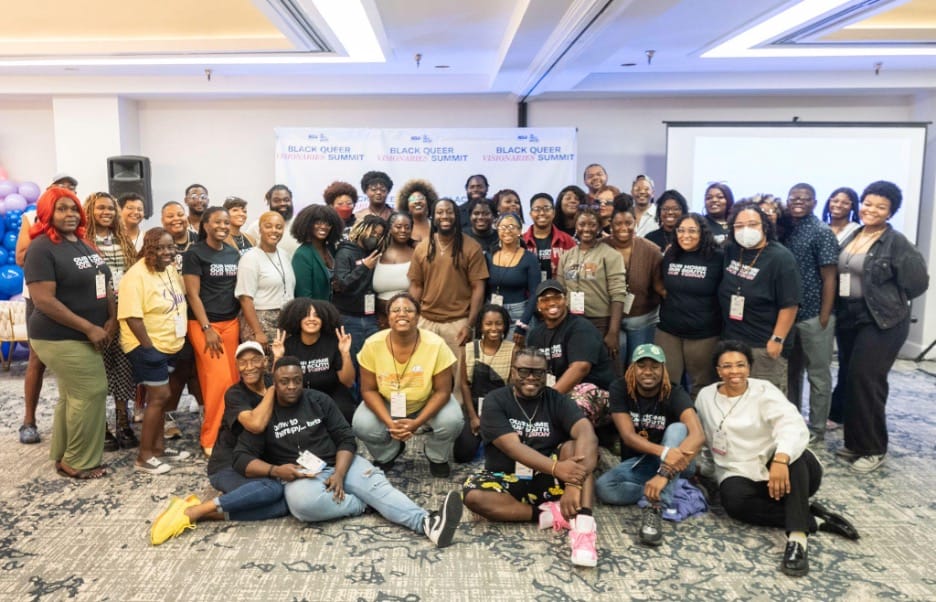It may come as a surprise to people living outside of the U.S. South that the majority of LGBTQ Americans reside in this region. Ask any LGBTQ person living in the coastal U.S. their thoughts about the experiences of queer people living in deep red states like Alabama, Georgia, and Mississippi, and their reaction is likely to be a combination of fear and sympathy. Sure, some queer people flee the South for more politically and socially progressive states. Then some remain and commit themselves to creating a future that is welcoming and affirming of all people, especially Black queer folks who still choose to call the South home.
Kamilah Kenyatta, Gender/LGBTQ+ Justice Organizer, ACLU Alabama, and TC Caldwell, Executive Director, The Knights Orchid Society (TKO Society), are two of those people. Both Kenyatta and Caldwell served as co-organizers of the inaugural Black Queer Visionaries Summit (BQVS), an offshoot of Black Trans Futures, a five-month, paid organizing and storytelling collaboration between the ACLU of Alabama and TKO Society that provided Black transgender Alabamians with community organizing and storytelling skills to combat anti-trans rhetoric and legislation. BQVS was held in Birmingham over three days in early October.
“The creation of BQVS was our declaration that we have always been here, and we are here to stay,” Kenyatta said. “When our communities are forced to defend our very existence, such as fighting legislative attacks on trans healthcare, book bans that erase our stories, and being confronted with the effects of systemic violence, we are not meant to have time to dream.”
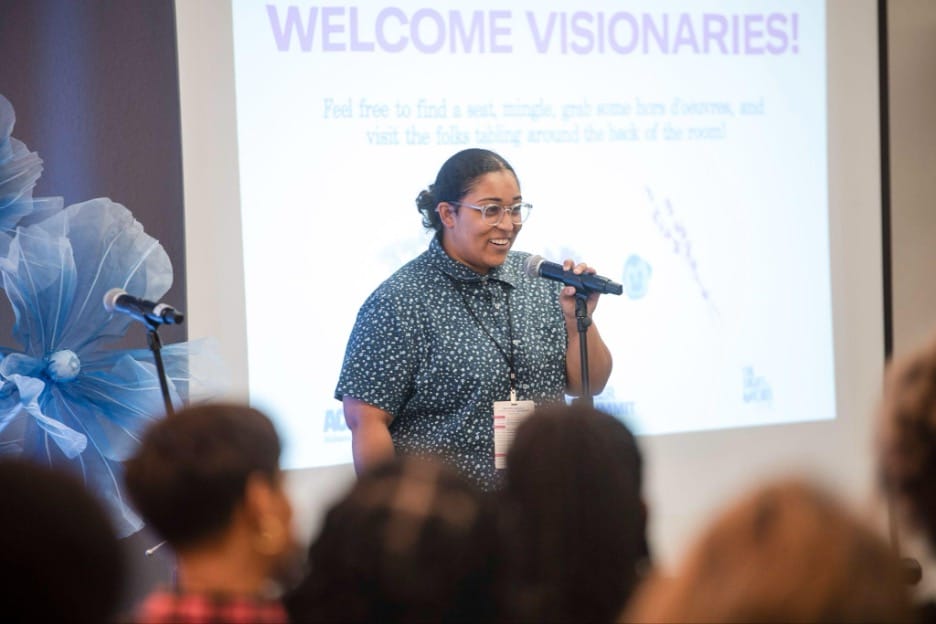
For organizers, BQVS was a tangible, community-first manifestation of each organization’s direct investment in Black LGBTQ communities.
“This [BQVS] was not about reacting to struggle, but rather a proactive and intentional gathering that poured directly into the attendees and their lived realities,” Kenyatta said. “We held space for all of it: the hard conversations, building around and mapping out practices for community care and organizing, the collective processing of grief, the sacred act of archiving our own stories, and most importantly, for radical unapologetic joy.”
ACLU Alabama and TKO Society selected over 60 Black LGBTQ people from across the South for the all-expenses-paid inaugural BQVS cohort. Redefining home as Black queer and transgender Southerners was one of the first visionary assignments facilitators gave to attendees and speakers on day one.
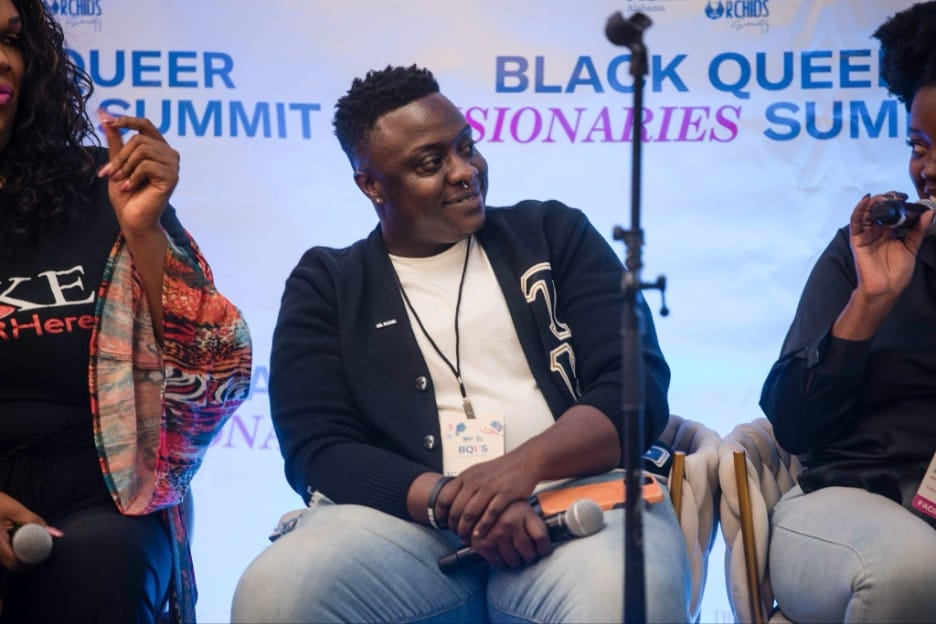
During the opening fireside chat, Caldwell, a Black transgender man and Montgomery resident, described home as a place “where my nervous system is calm, where I don’t have to pick what bathroom I go to. Where people witness me but don’t perceive me.”
The use of bathrooms that align with one’s gender identity remains a baseless but relentless priority for conservative Alabama politicians at the expense of the dignity and humanity of transgender Alabamians. It was also an issue organizers had to navigate on-site in real time after being forced to designate an additional hotel room for transgender attendees to use the bathroom without fear of questions or confrontation from other hotel guests who might object to their entry into a bathroom they feel safest in.
“Why are we still navigating bathroom use? It was a sharp reminder that we still have a long way to go in the South,” Caldwell said. “Being called to the front desk like children to discuss “the bathroom problem” really showed me that bodily autonomy is a right many of us may never have if we continue to let things like this happen.”
“The worst part is that we anticipated this,” Kenyatta said. “Given the current climate, we thought about safety extensively beforehand and had already secured private suites to ensure a comfortable, judgment-free option was available. We fundamentally believe in letting people use the bathroom that aligns best with their identity and needs, and we never wanted to police that. We are so grateful that folks still resonated with the space, but it certainly undermined the sense of belonging we were working so hard to ensure for our attendees.”
In the last five years, the Alabama Legislature has passed several laws targeting LGBTQ people, including the original “Don’t Say Gay” law passed in 2021 and a ban on gender-affirming medical care for transgender youth the following year, according to reporting from AL.com.
“We get to create what home looks like,” said Jenice Fountain, executive director of The Yellowhammer Fund. “We get to create what healing looks like, and it’s always gonna look different from any mainstream ideal,” she said.
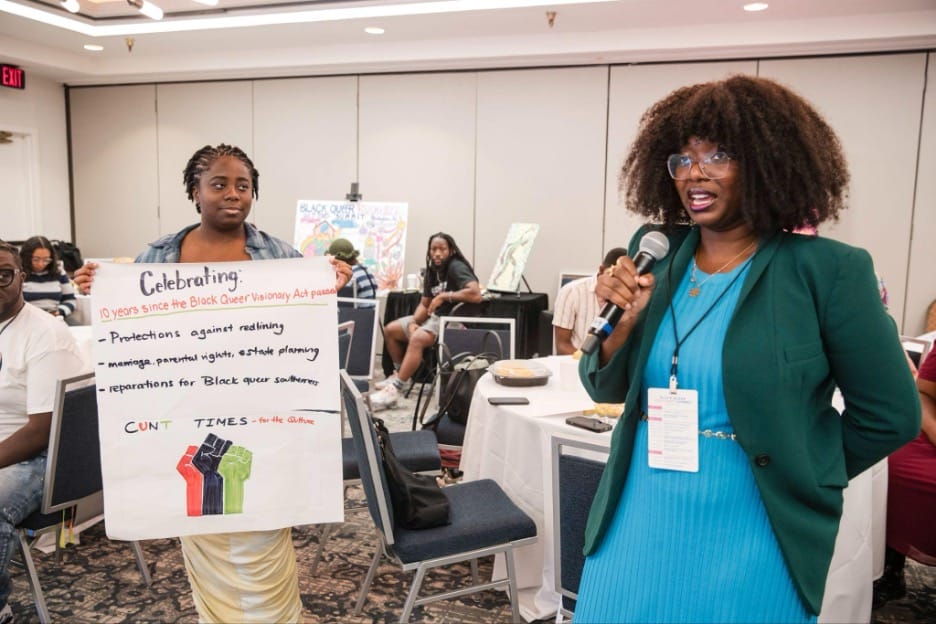
“Home consists of showing up whole,” said Daroneshia Duncan-Boyd, founder and executive director of the Birmingham-based TAKE Resource Center (Transgender Advocates Knowledgeable Empowering).
“People don’t understand our courageous identity. We show up with so much courage,” Duncan-Boyd told GLAAD in a previous interview. “We’re gonna do it, no matter how somebody views us or what anyone says about us. We are who we are and will stand true to what we believe in.”
“Nobody has ever loved me or cared for me the way Black queer and trans people have, but nobody has ever hurt me the way Black queer and trans people have, and that tells me that we understand principle struggle and conflict,” Caldwell said. “We haven’t healed our shit yet because we’re still healing what our parents couldn’t do. We’re still healing what their parents couldn’t do. And now that we have language and access to these things, it’s gonna take us a little more time, but my God, we’re getting there,” they said.
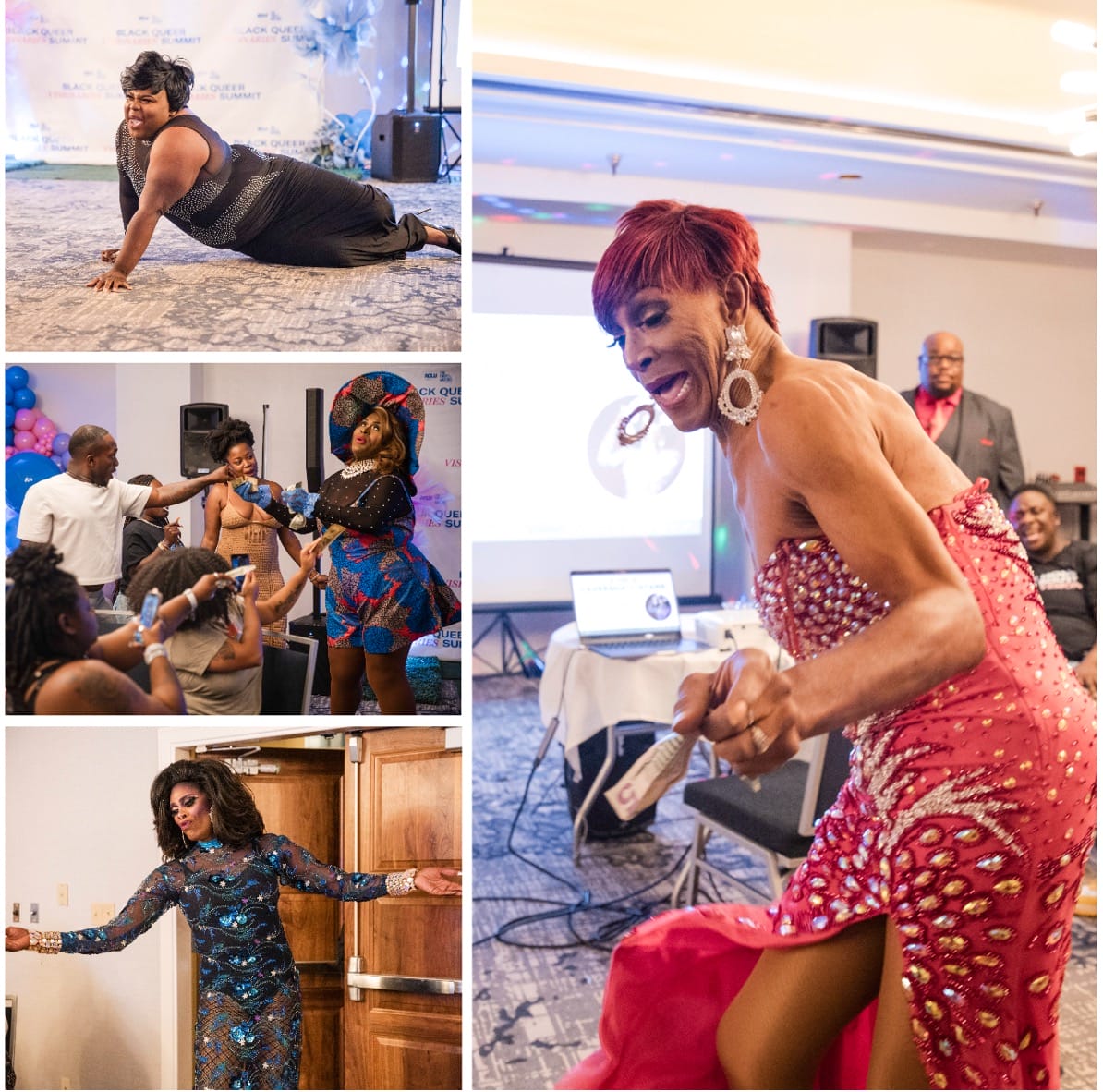
Facilitators centered strategy discussions on how to dismantle various forms of oppression throughout the Summit, but with a lineup of fierce Black drag performers, including Alabama drag legend Bronzie De’Marco, who recently celebrated her 56th year as a drag performer, organizers also made sure to center Black queer joy, and above all else, rest.
“Burnout is a real thing,” Caldwell said. “And these movements can’t move when dead bodies are pushing them.”
For Duncan-Boyd, one of Birmingham’s most respected and effective Black transgender leaders, creating work/life balance, while necessary, isn’t necessarily at the top of the list when the work is personal and Black LGBTQ organizations consistently lack vital resources.
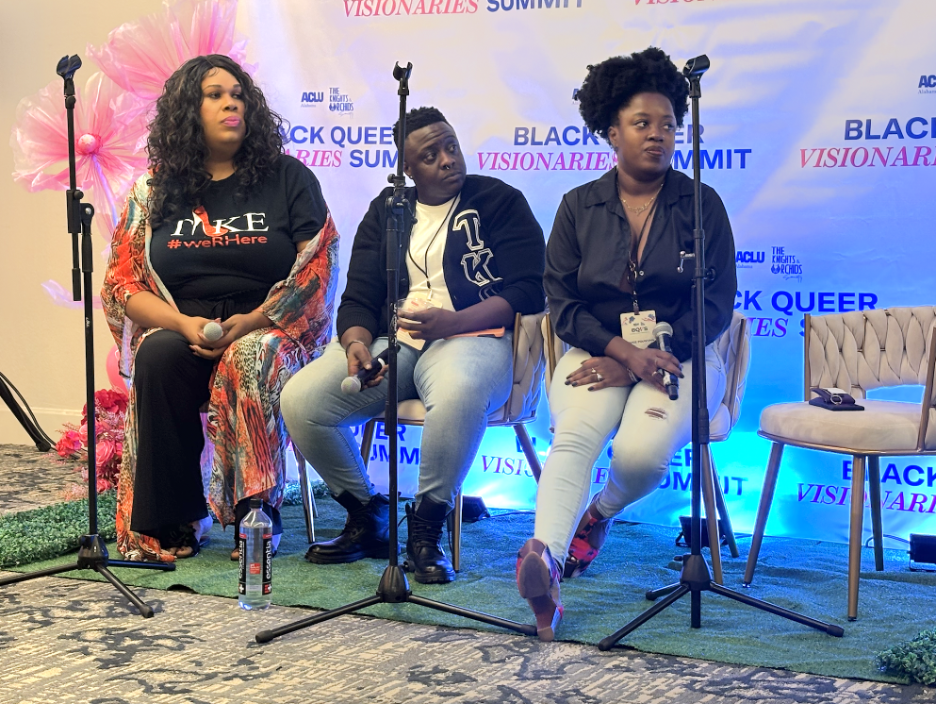
“If you don’t get emotional by doing this work, baby, you’re in the wrong field,” Duncan-Boyd told the BQVS cohort. “You’re not gonna tell me to detach myself from the people that I’m serving that look like me, identify like me, and have been where I’ve been. You’re gonna tell me to detach from them because it’s personal? Hell yeah, it’s personal because I see myself in them.”
With its inaugural success, Kenyatta says BQVS is “proof and a model for what is possible when we stop waiting for permission and start building the futures we deserve, right here in the South.”
And like every Black and queer person who is an ancestor or walking among us, the co-hort, Black LGBTQ people everywhere, including Caldwell, remain resilient in the face of increasing attacks on the community.
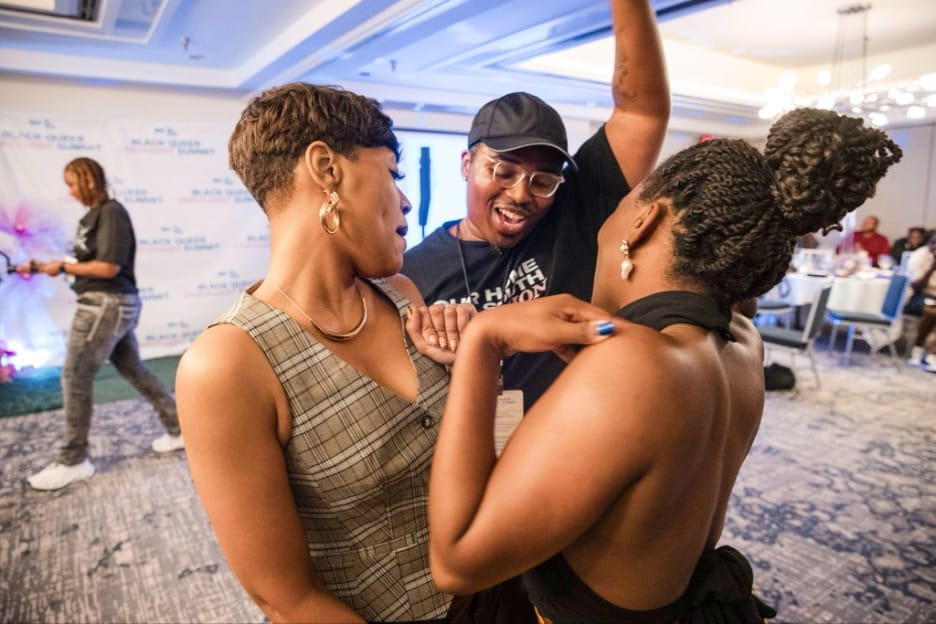
“We keep saying the world is on fire, but Lord have mercy, they will not stop us from dancing,” Caldwell said. “They will not stop us from celebrating or from loving one another. Joy is a part of our lineage and we deserve to be fu**ing happy.”

